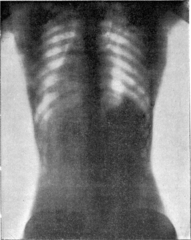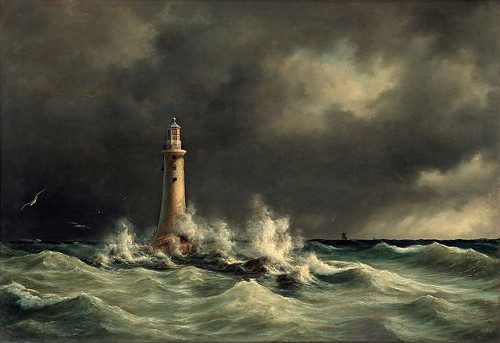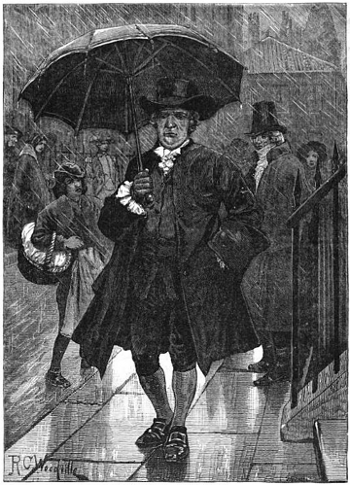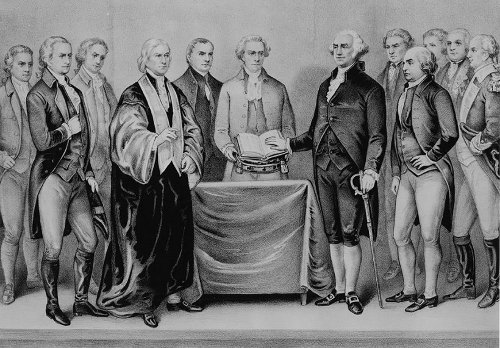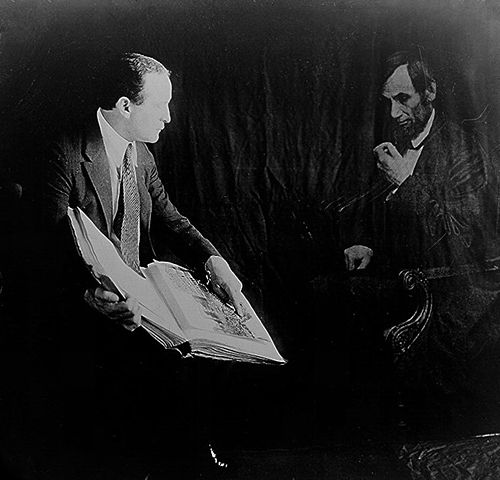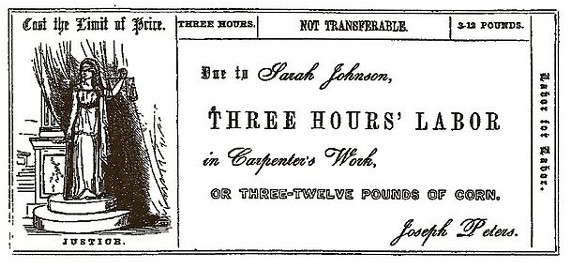
Anarchist Josiah Warren believed that the only just measure of a product’s value was the amount of labor that went into producing it. Charging more than this was “cannibalism” — interest, rent, and profit were state-sanctioned usury. Accordingly, he proposed a system where goods would be traded explicitly on this basis — “he who employs five or ten hours of his time, in the service of another, receives five or ten hours labour of the other in return.”
As an experiment, Warren opened a “time store” at the corner of Fifth and Elm Streets in Cincinnati in 1827. He priced all the goods at the amount he had paid for them, plus a small surcharge to cover overhead (his books were available for inspection at the back of the store), and customers could buy goods using “labor notes” — promises to perform labor, like the one above. As he accumulated notes, Warren would redeem those that he could use and endorse the rest, using them to buy more goods, following a list of their average cost in labor. In this way he set up a small economy among like-minded citizens in Cincinnati — each received fair compensation for his labors, but none could gouge another merely because “the market would bear it.”
In like spirit, Warren charged for his own time in running the store, using a clock — if it took him half an hour to help a customer buy groceries, 25 cents would be added to the customer’s bill. “This arrangement sweeps away at once all the higgling and chaffering about prices, so disgusting in the present system, but which is inseparably connected with it,” he explained in his 1852 book Equitable Commerce.
The store operated successfully for three years, with such low prices that the competitor on the next corner asked Warren’s help in coverting his own store to Warren’s system. Warren closed the time store voluntarily in May 1830 — because, according to one account, he felt he had no claim to the increase in value of the land on which it stood.


